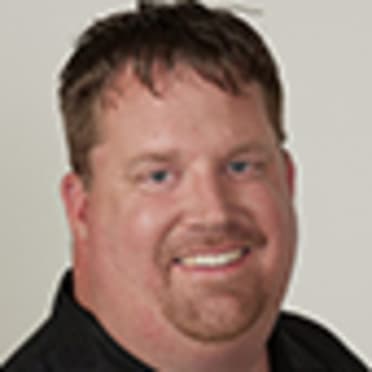Dale Murphy for HOF? Here's why, and why not
ATLANTA -- Nearly three decades after retiring, Dale Murphy might finally have a chance to enjoy that Hall of Fame election celebration, which many had anticipated before he spent 15 years on the official ballot and never came close to garnering enough votes from members of the Baseball Writers' Association of America.
Murphy’s candidacy has been revived as he once again finds himself on the Modern Baseball Era ballot. The Braves legend is one of 10 people placed on this ballot, which will be voted on by a 16-person electorate on Sunday at the Winter Meetings in San Diego. Those who receive 75% (12 of 16) of the vote will gain election, which will be announced on MLB Network at 8 p.m. ET.
When Murphy was on the official Hall of Fame ballot from 1999-2013, he never received more than 23.2 percent of the vote and garnered as much as 15 percent of the vote just four times ('99, '00, '01 and '13). He received just seven of the 16 votes cast when he was first placed on the Modern Baseball Era ballot in '17.
Making that election even more disheartening was the fact the 2017 committee included three key Braves figures -- Bobby Cox, John Schuerholz and Don Sutton. None of them are part of this year’s committee.
Here’s how Murphy’s Hall of Fame case breaks down:
The case for Murphy
Prime years (1982-87): Murphy won consecutive National League MVP Awards ('82 and ’83) and finished in the top 10 of voting over four consecutive years ('82-85). He also earned five straight Gold Glove Awards during this stretch. His 32.4 fWAR (FanGraphs’ WAR model) ranked ninth in MLB during this six-season span. Each of the eight players ranked ahead of him is a Hall of Famer: Wade Boggs, Rickey Henderson, Cal Ripken Jr., Mike Schmidt, Tim Raines, Gary Carter, Eddie Murray and Alan Trammell.
'80s icon: Recognizing those six great seasons does not make a Hall of Fame career, but it’s necessary to point out Murphy produced the second-most home runs (308) and RBIs (929) during the 1980s. Schmidt hit the most home runs with 313 and matched Murphy’s RBI total, which was trumped only by Murray (996).
Different perspective: Unlike when he was on the official ballot, Murphy is to be measured against only nine other men -- seven position players (Dwight Evans, Steve Garvey, Don Mattingly, Thurman Munson, Dave Parker, Ted Simmons and Lou Whitaker), one pitcher (Tommy John) and one former labor chief (Marvin Miller).
Murphy hit more home runs (398) than each of these candidates, and he’s the only member of this group to win multiple MVP Awards. His career 121 OPS+ matches that of Harold Baines, who was elected via this process last year.
The case against
Steep decline: Along with finishing two shy of the 400-homer milestone, Murphy hit just .238 with 86 homers and a .715 OPS over his final four full seasons (1988-91), which weren’t significantly shortened by injury. He totaled just 44 games with the Phillies and Rockies from '92-93.
At the end of the 1987 season, a 31-year-old Murphy had compiled 310 homers and an .862 OPS over 6,383 plate appearances. He averaged 36.3 homers from '82-87, and then never again hit more than 24 in a season. Even when accounting for a steady decline, it was easy to project Murphy would easily surpass the 400-homer mark and keep his career OPS around .850.
Through 1991, all 17 players who had hit 400 homers with a career OPS of at least .850 are Hall of Famers.
Murphy finished his career with 398 homers and an .815 OPS. Baines, Raines and Henderson are the only outfielders who began their career after 1950 and were elected to the Hall of Fame after hitting fewer than 400 homers with an OPS at .815 or below.
Precedence: Baines’ election might have widened the boundaries for election. But looking just at Murphy’s best six-year stretch, his 144 wRC+ still ranked sixth in the Majors, trailing Pedro Guerrero (154), Schmidt (151), Boggs (150), Jack Clark (147) and Mattingly (146).
While Schmidt and Boggs are Hall of Famers, Guerrero and Clark saw their candidacies weakened by defensive value. Defense should account for some of the debate regarding this year’s Modern Era candidates.
Competition: The only players on this year’s Modern Era ballot with a better career OPS+ than Murphy (121) are Evans and Mattingly (both at 127).
Mattingly won each of his nine Gold Glove Awards as a first baseman, while Evans captured his eight Gold Glove Awards before transitioning from right field to first base. Murphy won each of his five Gold Glove Awards as an outfielder.
This year’s committee might also continue to show respect for Simmons, who never won a Gold Glove but has continued to be lauded for his skills as a catcher. The current Braves scout finished just one vote shy of election when he was on this same ballot in 2017.



